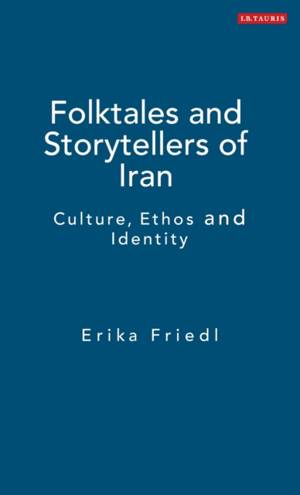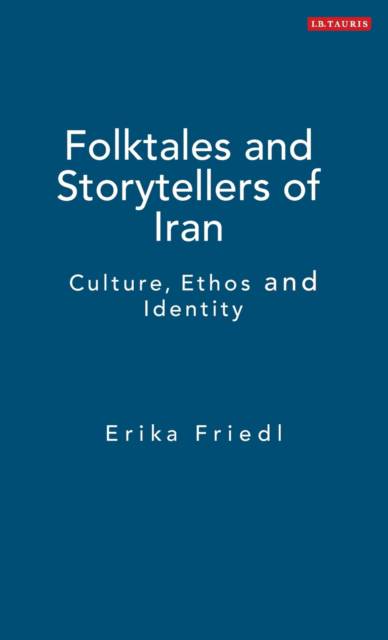
Je cadeautjes zeker op tijd in huis hebben voor de feestdagen? Kom langs in onze winkels en vind het perfecte geschenk!
- Afhalen na 1 uur in een winkel met voorraad
- Gratis thuislevering in België vanaf € 30
- Ruim aanbod met 7 miljoen producten
Je cadeautjes zeker op tijd in huis hebben voor de feestdagen? Kom langs in onze winkels en vind het perfecte geschenk!
- Afhalen na 1 uur in een winkel met voorraad
- Gratis thuislevering in België vanaf € 30
- Ruim aanbod met 7 miljoen producten
Zoeken
Omschrijving
What are the myths and stories that penetrate a society's everyday practices? What are the un-questioned 'truths' that hold the keys to understanding both the concept of self-perception and group identity? Here, Erika Friedl highlights the role of the fairytale and folklore in the creation, transmission and manipulation of regional and national identities. Having carried out anthropological research in Iran since 1965, Friedl is uniquely placed to analyse the ways in which the folklore and fairy tales - both the stories themselves and the telling of the stories - have an impact on the idea of what it means to be 'Iranian'. Friedl approaches the relationship between nation and mythology at an ethnographic level, attempting to unite folktale texts with life as lived by the storytellers and listeners. This approach grounded in lived experience allows Friedl to detail the ways in which Iranians think about their lives and their culture by investigating the folktales that articulate, confirm and affirm the philosophical tenets upon which the Iranian people base their values on actions.
Folktales are often vehicles through which both the narrators and audiences are able to express shared beliefs, ethics, concerns, experiences, behaviour patterns and assumptions. And it is with this in mind that the folktales provide here a key as to how people position themselves within their culture and society. As Friedl shows, Iranian folktales are documents of a philosophy, logic, ethics and theology, and express what choices the Iranian culture provides for how people may live and what to expect as they are making their days. Folktales and Storytellers of Iran explores the key ideas of cultural identity, self-knowledge and understanding, and how these are represented and developed through a rich literary tradition of folklore and storytelling in what was for a long time an oral-based culture.
Folktales are often vehicles through which both the narrators and audiences are able to express shared beliefs, ethics, concerns, experiences, behaviour patterns and assumptions. And it is with this in mind that the folktales provide here a key as to how people position themselves within their culture and society. As Friedl shows, Iranian folktales are documents of a philosophy, logic, ethics and theology, and express what choices the Iranian culture provides for how people may live and what to expect as they are making their days. Folktales and Storytellers of Iran explores the key ideas of cultural identity, self-knowledge and understanding, and how these are represented and developed through a rich literary tradition of folklore and storytelling in what was for a long time an oral-based culture.
Specificaties
Betrokkenen
- Auteur(s):
- Uitgeverij:
Inhoud
- Aantal bladzijden:
- 296
- Taal:
- Engels
- Reeks:
- Reeksnummer:
- nr. 48
Eigenschappen
- Productcode (EAN):
- 9781780766690
- Verschijningsdatum:
- 21/02/2014
- Uitvoering:
- Hardcover
- Formaat:
- Genaaid
- Afmetingen:
- 147 mm x 221 mm
- Gewicht:
- 498 g

Alleen bij Standaard Boekhandel
+ 542 punten op je klantenkaart van Standaard Boekhandel
Beoordelingen
We publiceren alleen reviews die voldoen aan de voorwaarden voor reviews. Bekijk onze voorwaarden voor reviews.









